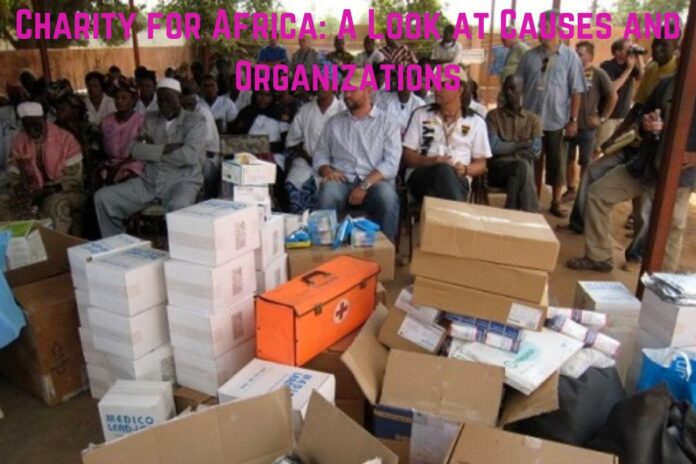Introduction:
Donations to Africa play a crucial role in addressing various socio-economic challenges prevalent across the continent. From poverty alleviation to healthcare improvement and educational advancement, philanthropic contributions have the potential to make a significant difference in the lives of millions. However, understanding the dynamics of donations to Africa requires a nuanced perspective that considers both the positive impacts and potential challenges associated with such initiatives.
The Importance of Donations:
Africa is home to some of the world’s most impoverished regions, where access to necessities such as clean water, healthcare, and education remains limited. Donations serve as a lifeline for many communities, providing essential resources and support to address pressing needs. Whether it’s funding for infrastructure development, humanitarian aid during crises, or investment in sustainable development projects, donations play a vital role in improving the quality of life for countless individuals across the continent.
Types of Donations:
Donations to Africa come in various forms, ranging from financial contributions and material aid to technical expertise and capacity-building support. Some of the common types of donations include:
- Financial Donations: Monetary contributions from individuals, organizations, governments, and international agencies form the backbone of many aid initiatives in Africa. These funds are used to support a wide range of programs, including poverty alleviation, healthcare services, education, and infrastructure development.
- Material Aid: Donations of goods and supplies, such as food, clothing, medicine, and educational materials, are essential for addressing immediate needs in vulnerable communities. Humanitarian organizations often distribute such aid during emergencies, natural disasters, and humanitarian crises to provide relief to those affected.
- Technical Assistance: Beyond financial and material support, donations also encompass technical expertise and knowledge transfer. This can involve sending professionals such as doctors, engineers, educators, and agricultural experts to share their skills and experience with local communities, empowering them to build sustainable solutions to their challenges.
Impact of Donations:
Donations to Africa have the potential to yield significant positive impacts across various sectors:
- Poverty Alleviation: By providing financial resources, livelihood support, and access to education and healthcare, donations help lift individuals and communities out of poverty, fostering economic growth and social development.
- Healthcare Improvement: Donations contribute to the expansion of healthcare infrastructure, provision of medical supplies, and training of healthcare workers, thereby enhancing access to quality healthcare services and reducing disease burden.
- Education Enhancement: Investments in education, including scholarships, school construction, teacher training, and curriculum development, improve literacy rates, expand educational opportunities, and empower future generations with the skills they need to succeed.
Challenges and Considerations:
While donations to Africa have the potential to bring about positive change, several challenges and considerations must be taken into account:
- Aid Dependency: Overreliance on external aid can create a culture of dependency, undermining local agency and sustainability efforts. Donors need to prioritize capacity-building and empowerment initiatives to foster self-reliance within communities.
- Accountability and Transparency: Ensuring accountability and transparency in aid distribution is crucial to prevent mismanagement, corruption, and misuse of funds. Donors should prioritize working with reputable organizations and implementing robust monitoring and evaluation mechanisms to track the impact of their donations.
- Cultural Sensitivity: Cultural differences and local contexts must be considered when designing aid programs to ensure they are relevant, inclusive, and respectful of community norms and values.
Conclusion:
Donations to Africa have the power to catalyze positive change and improve the lives of millions across the continent. By understanding the diverse needs of African communities, leveraging various forms of support, and addressing key challenges, donors can maximize the impact of their contributions and contribute to sustainable development efforts that benefit generations to come.








